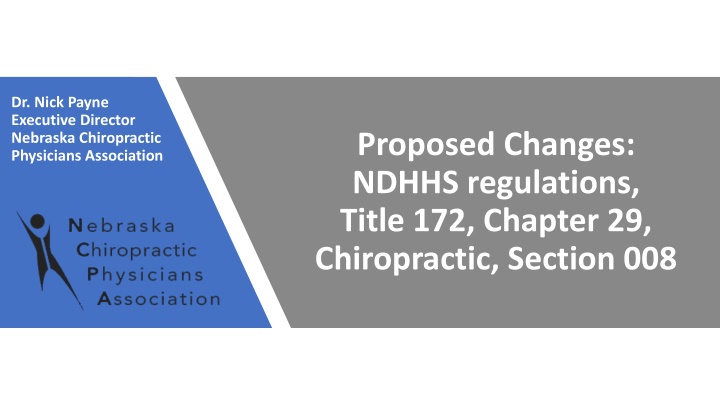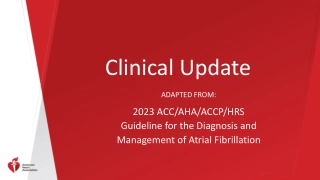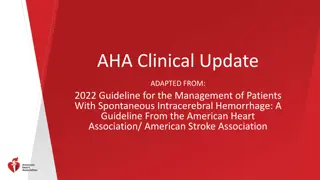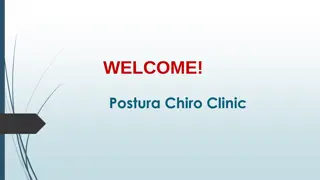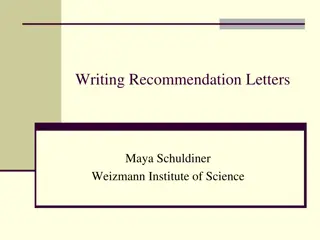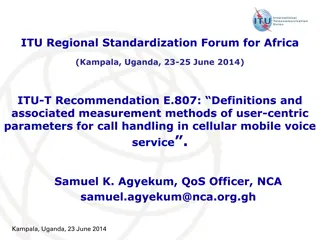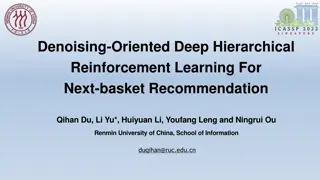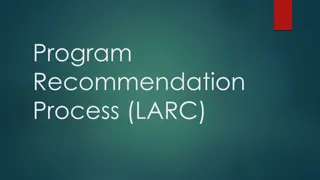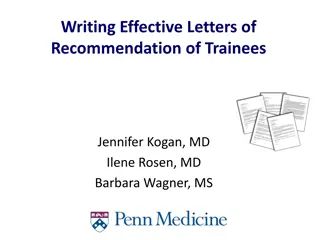Impact of Court Decision on Chiropractic Diagnostic Testing Regulations
The court case of Yagodinski v. Sutton in Nebraska involving expert testimony on traumatic brain injuries by chiropractors has raised questions about the scope of diagnostic testing allowed for chiropractic care. The court ruled that specialized tests used by chiropractors may not be admissible in court testimony. This decision has direct implications on the legal opinions that can be rendered based on chiropractic diagnostic procedures, potentially causing confusion surrounding chiropractic regulations in Nebraska.
Download Presentation

Please find below an Image/Link to download the presentation.
The content on the website is provided AS IS for your information and personal use only. It may not be sold, licensed, or shared on other websites without obtaining consent from the author.If you encounter any issues during the download, it is possible that the publisher has removed the file from their server.
You are allowed to download the files provided on this website for personal or commercial use, subject to the condition that they are used lawfully. All files are the property of their respective owners.
The content on the website is provided AS IS for your information and personal use only. It may not be sold, licensed, or shared on other websites without obtaining consent from the author.
E N D
Presentation Transcript
Dr. Nick Payne Executive Director Nebraska Chiropractic Physicians Association Proposed Changes: NDHHS regulations, Title 172, Chapter 29, Chiropractic, Section 008
Recent Developments Yagodinski v. Sutton, 309 Neb. 179 (2021) Primary Question: If a Nebraska licensed chiropractor was qualified to offer expert opinion testimony that his patient sustained a traumatic brain injury. Plaintiff: The Plaintiff s counsel attempted to offer the expert opinion testimony of their doctor and offered evidence that in addition to their doctor s chiropractic training, he had specific education and training in the diagnosis of traumatic brain injury and is a Diplomate of the American Chiropractic Neurology Board also commonly known as a chiropractic neurologist. Defense: The Defense counsel offered evidence from a licensed medical neurologist that the methods used by the plaintiff s doctor, a Doctor of Chiropractic to diagnose traumatic brain injuries were not generally accepted by medical neurologists. Findings: The trial judge ruled that while the chiropractor was qualified to testify to matters within the scope of his chiropractic licensure, he was not qualified to testify about the diagnosis of traumatic brain injuries, reasoning the specialized tests utilized in this case are not specifically included in Neb. Rev. Stat. 38-805. Therefore, in this particular case, a chiropractor can not testify to the use of such diagnostic procedures. 2
NDHHS regulations, Title 172, Chapter 29, Chiropractic, Section 008 DIAGNOSTIC TESTING. A chiropractor or chiropractic physician who accepts a patient for any professional reason has a duty and responsibility to perform an appropriate clinical evaluation on that patient for the purpose of assessing the patient s current health status or identify if the patient is a proper subject for chiropractic care. Such a clinical evaluation may involve diagnostic procedures which aid in arriving at a clinical impression. The diagnostic procedures may include, but are not limited to, urine and blood analysis and diagnostic imaging. The court, looking to the administrative regulations, noted that the examination must be performed to assess the patient s health to determine if the patient would be a proper subject for chiropractic care. The court overlooked an important portion of the regulation that established the opportunity to assess the patient s current health status. 3
Supreme Court Findings The opinion of the appellate court was affirmed The court focused on NDHHS regulations, Title 172, Chapter 29, Chiropractic, Section 008 4
Impact of this Case Direct Impact: The methods and utilization of specialized tests currently within the training, ability, and scope of Doctors of Chiropractic are now unable to be used to render a legal opinion in court testimony. Potential Impact: Confusion around Title 172, Chapter 29, Chiropractic, Section 008 may be interpreted to include any examination that is not performed to identify if the patient is a chiropractic candidate may be considered outside the scope of chiropractic practice. Preparticipation physical Sports physical DOT examination Independent medical examinations The confusion created in this regulation could limit the publics choice of providers 5
Proposed Language Change Current Regulation: A chiropractor or chiropractic physician who accepts a patient for any professional reason has a duty and responsibility to perform an appropriate clinical evaluation on that patient for the purpose of assessing the patient s current health status or identify if the patient is a proper subject for chiropractic care. Such a clinical evaluation may involve diagnostic procedures which aid in arriving at a clinical impression. The diagnostic procedures may include, but are not limited to, urine and blood analysis and diagnostic imaging. Proposed Regulation: A chiropractor or chiropractic physician who accepts a patient for any professional reason has a duty and responsibility to (1) perform an appropriate clinical evaluation on that patient for the purpose of assessing the patient's current health status or (2) identify if the patient is a proper subject for chiropractic care. Such a clinical evaluation may involve a physical or clinical examination or other diagnostic procedure which aids in arriving at a clinical impression or an assessment of the patient s current health status. The diagnostic procedures may include, but are not limited to, urine and blood analysis and diagnostic imaging. 6
What Does This Change? Supreme Court ruling? -No Chiropractic statute? Regulation intent? -No -No 7
Questions Dr. Nick Payne npayne@nebraskachiropractic.org 402-502-7411 www.nebraskachiropractic.org 8
